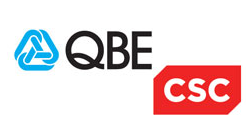The Pros and Cons of Scripting
When it comes to thinking about your options for moving files both internally and among the members of your trading partner network, scripting will likely be considered as an option. Your team probably already has resources who can create file transfer scripts, so why not?
The truth is, there are pros and cons to evaluate when it comes to relying on scripts, just as there are for most considerations in IT life. Scripting can definitely have some perks depending on its application. However, it’s important to weigh these against the benefits of a full managed file transfer (MFT) solution to make sure you’re making the best decision for your business over the long term.
Scripting Pros:
1. Most network administrators know how to script.
Scripting languages like bash, shell, and PowerShell are typically taught in college during PC networking and computer management courses. If a network administrator wants to automate a repetitive task, a script will be the first thing they think of since this is what they were formally taught to do.
2. Scripting is free.
Assuming you have people who already know how to create a script, you don’t have to purchase software or hire a consultant to begin. In a matter of hours, you could have a script up and running to handle some of your time-consuming, routine file transfer tasks.
3. Each operating system has a built-in scheduler, which is also free.
Scripts can be scheduled directly through the UNIX or Windows operating system scheduler. PowerShell is often considered the most advanced scripting language, since Microsoft has built-in functions that work with active directory, device management, and unattended software installation.
4. Scripting is useful for repetitive file movement tasks and some PC management.
Scripts can create, update, delete, move, and modify files and folders. This makes them a prime candidate for file transfer automation that needs to happen on a regular basis, such as a sales report that needs to be run and emailed to the leadership team. There could also be a task set up to check a folder every few hours to see if a file has been placed there, which could trigger related downstream activities.
Related Content: Converting Scripts to Projects
Scripting Cons:
1. Complex scripts take a lot of time to create and test.
Although scripting is free in terms of not requiring hard dollars to get one going, it is very costly from a time perspective. The personnel who are able to create effective scripts to move files are valuable to your department from a time perspective, and scripts need to be tested and verified to ensure they work properly. Scripts must also be edited and updated over time to maintain the correct host names, users, password, etc. to remain up-to-date.
2. Scripts have to be managed and secured.
After a while, you’ll probably have dozens or even hundreds of scripts running at your organization. This can be cumbersome to manage, and your team may lose track of which scripts are running and for what purpose. Someone needs to have oversight to these processes, which could be complicated if multiple individuals have created them and only they know their purpose. Additionally, scripts—like most other infrastructure—must be secured, which isn’t always possible without the right tools in place. In fact, scripts may not comply with the latest compliance requirements, which may affect your business from a liability standpoint.
3. Scripts typically lack the coding standards followed by developers.
Not all scripts are created equal. Their structure can wildly vary from one developer to the next, and they can be very hard to read and understand. If the script’s developer leaves the company, they’ll take a good portion of their knowledge with them, leaving others to struggle with reading and interpreting the scripts. This can cause issues when it comes to making updates.
4. Network administrators often lack the advanced skills needed to undertake scripting for data translation and API connections.
Although virtually all network administrators have some level of scripting capabilities, they may not be able to carry out advanced applications. Scripts requiring data translation are increasingly important in today’s Big Data era when information sharing among people and systems is critical. Likewise, when you need a script to log into an API to grab data and then pair it with other details, you’ll need the right person to know how to accomplish this.
5. Scripts lack job management capabilities.
Assigning job priority and job queues are not tasks that scripts typically do. This is a case where MFT provides the necessary automated oversight for peace of mind. It also reduces the level of user interaction required to know that a job has completed as expected.
6. Scripts lack alerts and reporting.
Most scripts do not have built-in alerts, so you often are not notified when a file does not reach a trading partner on time. Scripts also generally do not have good auditing, so it is difficult to tell what files are leaving and coming into your organization, along with timestamps and other log details. In addition, without good auditing and reporting, it will be much more challenging to prove compliance with regulations if audited.
The Time Is Right to Explore Managed File Transfer
When it comes down to it, scripting can be time consuming, pose security issues, and still require manual file transfer processes that ultimately slow you and your business down. A solid MFT solution is often a better choice. There’s typically tremendous value in transitioning from legacy scripts created in house to a secure software solution that not only meets compliance requirements, but also gives employees time back.










